
Mindset Unlimited: Tips, Tools, and Inspiration for Women in a Time of Change
Your Mindset Unlimited is a podcast for women navigating professional and life transitions who are seeking to release learned limitations and build a more holistic, liberatory version of success.
Your Host, Valerie Friedlander, is an ICF certified coach, sociologist, intersectional feminist, artist, business owner, and mom. Based in Chicago and supporting clients world-wide, she helps high-achieving women transition into their next chapter of life with clarity, confidence, and self-compassion. lead with intention, and create their definition of success that honors all aspects of their life.
In this podcast you'll find tips, tools, and inspiration to help you release the internalized limitations cultivated by our social system imbalances and lead your life with more ease and joy.
Some of the topics you'll find here are: finding fulfillment, habit shifting, motivation, time management, money mindset, stress management, impostor syndrome, productivity, work/life balance, communication, boundaries, leadership, social activism, burnout, building a business, motherhood, and more.
You can find out about Valerie and her work at www.valeriefriedlander.com
Follow her on most social media @unlimitedcoachval
Sign up for her email list at www.valeriefriedlander.com/signup
Books referenced on the podcast can be found on Bookshop.org
https://bookshop.org/lists/unlimited-podcast-book-recommendations
Mindset Unlimited: Tips, Tools, and Inspiration for Women in a Time of Change
Navigating Change in the New Year
Use Left/Right to seek, Home/End to jump to start or end. Hold shift to jump forward or backward.
Navigating change in the new year without the overwhelm can feel like a lot—especially when life feels messy, uncertain, or heavy. Real change starts with understanding the waters we swim in (ie the pressures of our social norms) and engaging our internalized patterns as well as the emotions and discomfort of stepping into the unknown. We must unhook from perfectionism, certainty and results, and lean into the experience of an emergent process. When we take time to understand why change feels so challenging and what support we need to move through it, we can create space for growth and align with what truly matters. This work is crucial because it shapes not only how we show up for ourselves but also how we show up and shape change in our relationships, communities, and the systems we’re part of.
In this episode of Unlimited, I share reflections on societal patterns and self-awareness in navigating change in the new year.
Some of what I talk about in this episode includes:
- Practical tools for tough conversations
- Engaging your stress response
- Tools to check in, support yourself, and make clear decisions
- How to interrupt bigotry to shift norms
LINKS REFERENCED IN THIS EPISODE:
Holiday Stress Support
Ask Valerie
Mindset Assessment discount code ELI2025
Coaching session – community pricing model
Exploration call
If you found this episode helpful, please share it!
You can tag me on social: @unlimitedcoachval
Want to share your thoughts or have questions? Send me a message! I love to hear from you.
You can email me at valerie@valeriefriedlander.com or DM me on Instagram
CONNECT WITH VALERIE:
Website
Facebook
Instagram
Get email updates
Schedule a free initial consult
Submit a question
Hello, my friends, and welcome to the final episode of unlimited in 2024 I can't believe we're wrapping up season four. That is mind boggling to me. This episode, we are talking about navigating change in the new year without the overwhelm, even when it is messy, which change is often messy and uncertain, which, even if we have a really solid plan, frankly, it is uncertain because life does the things that it does, and we only have so much control. So leaning into that uncertainty, or allowing making room for that uncertainty, supporting ourselves through that uncertainty and when it's heavy, because there is a lot of heavy change. Change is not pretty. Change is messy, as I said. It is difficult change, even when you're choosing change, let alone having things change around you that you then need to decide how you show up to it even when you're choosing change, it's messy and it involves a lot of stress. So if you are feeling stressed, that is normal, change involves stress tension, that's part of the process, and also why finding ways to process stress, finding supports for yourself, to lean into that uncertainty to create some support around yourself is so critical, because we can only process so much stress. So I had somebody reach out recently and ask about, what about existential dread? What do I do with that? And that's part of what made me think about this episode and all the things that I've talked about over the past four years. When we step into change with intentionality, it means that we gave room for ourselves to be intentional, that we recognize that stress is present, which tends to move us into our autopilot mode to be able to respond quickly. And that we said, You know what? I know that my nervous system wants to respond quickly. I need to support that energy in myself. I need to be able to release that energy so that I have access to my full ability of intentionality, so that I can choose consciously. And a lot of times we want to choose the right thing. We think, Oh, if I can just give myself room, then I can figure out what the right thing is, is where we get into paralysis, analysis or analysis paralysis. Basically, we're trying to figure out the right thing. And honestly, in a lot of what is in front of us, and I would say even generally, we won't know. We can't know. How do you even decide what makes something the right thing? Sometimes, when we make a decision, we immediately get what we might call positive feedback. Does that make it the right thing? Sometimes, maybe, but sometimes it seems great at front and then later on we find out other information that's like, oh, maybe that wasn't so maybe, or maybe that was what we needed to learn the next thing. So a big piece of all of this is being able to release knowing and certainty and perfection and all of the rigidity and lean into the messy middle the unknown, all of the pieces of change and to walk intentionally toward an unknown destination, my favorite word. Cody wample, so what we're going to talk about in this episode is why change feels hard, the role of societal programming, recognizing your patterns and finding agency in being intentional. I haven't decided yet what season five is going to look like. There's a lot coming up and a lot of room that I want to give myself to show up to that and show up to what this podcast needs to be. This. Podcast has always been about helping you show up to change, and I've talked a lot about being at a time of change, and times of change tend to kind of ramp up at times, and here we are. So I'm giving myself some room to really think about it. I have a couple specials that I I may throw out there, but this is the last episode until probably about February. In that time, I'd love to hear from you, if there is something that you would feel supportive from this podcast, let me know. Send me an email. I have a little form that's going to be in the show notes. You can ask me a question. I could very well do a season of like Dear Abby sort of thing. I have some upcoming pre recorded episodes with some other coaches, so talking about that perspective of change with other coaches who support this, lots of ideas, but especially for those of you who've been listening for a while, I'd love to hear from you. What would you like to hear about in season five? One last thing before we dive in, one of the things that happens when there's a lot of stresses are stress response, and our stress response makes it difficult to show up intentionally. So I'm offering the mindset assessment that I do, called the Energy leadership index assessment that helps you understand the patterns in your stress response and in the way you perceive the world, so that you have more power and agency in showing up to those patterns, not just the things, but being able to shift the pattern so that you can access greater ranges of choice in your life. I normally charge 345 for the assessment and the 90 minute debrief. I am offering five of these at 50% off. All the information is in the show notes, but the code is Eli 2025, and you can access it on my website. Again, everything will be in the show notes, but if you're looking for some support in the new year to really show up to shaping change with intention, this is a great resource for that. It's one of my favorites. It's one of my clients favorites, and I would love to offer that to you now. This has been a long intro. So without further ado, let's get started. Hey there. I'm Valerie Friedlander, Certified Life business alignment Coach. And this is unlimited. This podcast bridges the individual and the societal, scientific and spiritual, positive and negative, nerdy and no, there's just a lot of nerdy, come on board and let's unlock a light that's as bad ass as you are. So change feels hard because we like patterns. Our brains like patterns. It makes things easier. We have to use more energy to make decisions when things are different, when they're not as they are usually. Now, when we're living in a space where the as usual isn't actually serving us, it's breaking us down. It's breaking us down individually, socially, societally, familially, relationally, it's really destructive on so many levels, more so to some than to others. And in order to change that, we have to lean into an unknown space. We have to give more room, and yet we live in the society that's Go, go, go, hustle, hustle, hustle, keeping us in a state of constant stress where we don't have room. I was talking to somebody the other day about how there's this whole Well, we, you know, just slow down when you're over stressed and too busy, and how hard that is. So I want to say this is not me telling you, well, just slow down or just stop or whatever. You're not going to self care when you're being chased by a bear, when you're in the battlefield, you're not gonna just pause and be like, hold on. We gotta do something different. And sometimes we feel like we're in a battlefield we're fighting. And we don't have to be you. It feels like we have to be and we don't have to be because there's something else there. And the thing is that if we don't slow down, if we don't choose to do something different when we are constantly in this space, then it will choose for us. We will literally not be able to I can't tell you how many people I've worked with whose bodies were breaking down, and that's what finally got them to go. I need help, because sometimes you know you want something different, and you can't figure out how to do it, but you know you want it, and that's okay. That happens most of us. When we're in it, we can't see a way out of it. We can't see what we can change. So saying I can't make the decision I would like to make right now, but I know I want to make that, and so I'm going to get help to make it that is important. And sometimes when we do that, it looks different than we expected it to. I had a client who came to me wanting to work on herself. She was like, work is stable, finally. So I'm going to hire a coach to help me care for myself better, to understand myself and make room for myself. But as we worked together, work kept getting in the way. So while financially and work wise, everything was stable, she could not seem to make room for herself and work, which highlighted a deeper issue, which is that while work stays the same in what was normal and stable, she didn't have room for herself. And this is not a her issue. This is a societal thing. This is part of what I run into all the time. In this case, what happened was suddenly, work became unstable, and she went, Well, this is so frustrating because now I have to focus on work, and I wasn't supposed to focus on work. I was supposed to focus on me. The thing was that there was no room to do that until work shifted. So then we were actually able to look at all the moving parts. And while it felt even more unstable, because all the moving parts were unstable, there wasn't like one that was static. It meant that then we could start to look at, well, what does work need to look like? What boundaries can you put into place? Do you want to put into place? We were able to move all the pieces around. But what came with that, and one of the things that makes change so hard is not just the stress, but the grief. Because when you start to notice some of these things of how the choices that we've made led to where we are and where we are isn't working, and whether that's personally as the individual, person or societally, and start to go I fed into this. I participated in this thing that's not working. I did these things. And have to take a look at how we do life that can feel really uncomfortable and embarrassing and disappointing and shameful, even one of the things that we uncovered with her is that story that comes up a lot with people, which is, if I just work hard enough, everything will be fine. And the fact of the matter was that working hard enough was meaning that there was no room for her, that it was just the rat race as it were, right? You're still a rat. If you win the rat race, you're still a rat. So there's a grief in that awareness that the story that I learned about who I am and what I have to do and how the world works isn't true, that grief needs space, and it can be hard to do that too, and when we allow room for the emotions of change, we can start to let go of those things that we thought were stable, which were actually. Ly rotten, and there's a lot of that. So something you might reflect on as you head into a new year is where in your life has something seemed fine on the surface like this is this is fine, eventually it'll change. This is fine, but actually has a high cost, something that you're tolerating, that you're managing, but that it's costing you. Because I want to invite you to notice that the trajectory of toleration is never improvement. When you just tolerate something, maybe it'll stay the same, but often it slowly gets worse. It's like the frog in the pot of boiling water with and I hate this analogy because it's really gross. But if you if you have a frog in a regular pot of water, and then you turn it on and you slowly turn up the heat, it will just stay there until it dies, whereas, of course, if you put a frog in a pot of boiling water that's presently boiling, it will hop out. Now, I do not say this from actually having tried this. This is a story that I have heard so not not lived experience on my part, but makes sense, and it's something I see a lot. We just we get used to it, and then it gets worse. And I've seen this in corporate too, where, oh, you know, we'll get support in here eventually, and then you end up with more work. And they never hire a new person, and then you end up with more work. So noticing, where are you tolerating? And maybe you wouldn't make a shift right now, but what shift would you like to make? What things could you start that would allow you to move closer to the shift that you would like to make? Related to that is a client who, even after we did a lot of work to align her work with her values, there was this constant push to keep growing her business and to stay busy in the story of being lazy or I need to do more, otherwise, I'm not doing enough, started to come in, and it meant that she slowly stopped having as much time for herself, and then that led into slowly having less Time for family. And suddenly work was the dominating thing. And in our work together, she realized this is just like when I was in corporate, this. Oh, it's here. It's fine. A little bit more, a little bit more. I'll just deal with it. I can get that done. I can handle this. Oh yeah, that's fine, and then slowly piling up until suddenly there was no room. We all have ingrained patterns, and the thing is that the more stressed out we are, the more we will fall into those patterns. And those ingrained patterns are rooted in our societal structures. So rather than beating yourself up if you are noticing them, know that when that pressure increases, we can start to see what the pattern is. If we give a little room to noticing it, and that is when you have an opportunity to do something different, because we can't change things. We can't see. You can't break chains, you can't see and so when we can see them, when we make the room to see them, even if you can't change them, right then, as I said, before you can start to move that needle forward, you can start to go, oh, okay, now I see it, and I'm gonna do this. Instead of this, I'm going to say no to that next thing, or I'm going to delegate, even if it seems like it's easier to do it. Or I'm going to go, you know what? These both these things are important. This one's more important. I'm going to let this other one go. The more room we have access to choice, the more. Ownership we're taking of our life. And then I say ownership, I think about like, if you have a vehicle, you care for the vehicle. You have it, do maintenance, you change the oil, you fill the tank up with gas. You own that so you're responsible for it. You also own your life, which means you're responsible for it. What does your life need? So that you are fully living it, so that you are caring for it, so that you are nurturing for it, and you're not just waiting for the next thing. We don't want to wait our way through life. We want to create it, shape it, own it. We don't know what the ripple effects of that will be, but we do know that when we show up with intention, we can choose the next thing, and we might choose something and go, Oh, you know what that is? That is not how I want to do that, because when we choose it intentionally, we can learn from it, and we can choose again. When we don't choose intentionally, we can't learn from it, and we can't choose, and we end up slowly in more and more no choices. So where can you make choices? Take a look. If you are in the stress, if you are feeling the pressure, notice where you feel the pressure, where do you feel the stress? Where do you feel the tension? Where are you tolerating? Where are you losing your cool? In those places? Are the threads to pull a little bit on go, oh, let me notice this. There's tension here. That means that there's information here. If I'm feeling tension, there's information. What is the information. What is the pattern? Where have I seen this before? Where have I felt this before? Is it always in this space, or is it over here? This is where so often people shift from corporate into starting their own business, and they're like, wait, I'm burning out again. Why? Well, because we carry our patterns with us wherever you go, there you are. So taking a moment to notice when there's tension, don't beat yourself up over there being tension or anger, frustration or sorrow or disappointment. Oh, I did it again. Okay. Great. You did it again. Cool. What did you do again? What motivated you doing that thing again? What was the energy there? What was the emotion? Where did you feel it in your body? What does it look like? Where was a choice that you could have made? What are three options of ways you could have done something differently? This can be hard to do on your own, so if you are struggling with it, that's okay. That's normal. We're not meant to do this on our own. It's one of those things where it's hard to see ourselves. So we need a mirror, we need a reflection. We need support. We're communal creatures. So we need each other. If you can notice that something feels off, that's a great start. So much of what holds us back, so much of what keeps us in the same thing that we usually do is invisible. There are beliefs, habits that we've internalized over time. So just beating yourself up, oh, I'm just not working hard enough. I'm just bad at balance. I need to learn how to manage things better. Really, we're navigating systems and conditioning that's designed to keep us in a stuck space, repeating our patterns. So just noticing that you're in a pattern is great, and I really encourage you to congratulate yourself for noticing and the next step is saying I want to do something different, and then finding the support to do something different if you are not able to do something different on your own, and that's okay. So those are my reminders for you. Unpacking this takes space which many of us don't really have. It takes reflection, which means outside of ourselves and having a mirror, because it's hard to see programming when you're living inside of it. I was recently i. Privy to a conversation at my kid's school where somebody took a recommendation of therapy as an attack, like something was wrong with them. And I know that if you're listening to this, you are not one of those people, and I just encourage you to think about being an example of care for one another, and not just of giving care, but of receiving care. I honestly think we need more examples of people saying that they got help, that they got support, and while my feed the people around me. I hear so much I'm like, Oh, I thought we were past that stigma. We're not. We're not. It's human to need other people. So your self work is something that you are the only person who can do and you are not meant to do it alone, because we need each other. So as we head into a new year that is full of uncertainty, full of messy, probably lots of awfulness, I want you to know that what you choose to do matters you matter how you show up in your own life, matters how you experience life, living it versus just avoiding dying. There was a great post my mom actually shared recently from someone who had a dear friend named Carrie groat who died from brain cancer. And one of the things in this is that this idea of battling cancer, it's an analogy that basically shames people who die from cancer like they lost a battle. And she wrote news flash, none of us gets out alive from this rodeo called life. There is no shame in dying from cancer or any serious illness, and it doesn't need to be a battle. It's a transition that each of us will go through. I was asked by a shaman whom I spoke to after my second brain surgery, are you running towards life or running away from death? Whoa, that got my attention. There's a big difference. I got it wrong more often than not. Don't let fear fuel your choices. Live fearlessly. Run towards life. Don't worry about what people will think. Trust me, it doesn't matter. Focus on you. Be true to yourself. Be your own best friend, people who tell you you're selfish are not your people. If the voice in your head says these unkind things, get a new voice. Honor your mental health. Seek out a good therapist with the same vigor you'd search for a romantic partner. She goes on, but I want to leave you with that, that you are worthy of room of space of care, find what that is for you. Maybe it's just a group of people that you can connect with, that you can share your heart with. Maybe it's a therapist, maybe it's a coach. Maybe it's multiple people. You are worth multiple people. I know that financially, we don't support these things, and we have to think radically. We are in time of radical change, and we have the power to shape that change, though, we won't see what the change or the shape of the change will look like. Most likely, all we can do is our part and your part. You get to choose that you you get to choose what really matters. What would it mean to make room for you, not just your work, not just everyone else, but your joy, your values, your vision for life. There's a lot of pressure to go and to do and to fix. We are where we are. Real change doesn't happen through force or urgency. It happens when we make space to see what's really going on and choose what's important. Into us and then take an intentional step forward and learn, and take another intentional step forward and learn. You may have noticed I'm repeating myself a little bit on some of these things, and that's because it's hard, and we need reminders. We need lots of reminders. So if you're feeling overwhelmed, stuck, unsure, you're not alone, that's normal. Notice the patterns that aren't serving you, and seek support. You don't have to figure everything out on your own, and support might look like for you and it may look like for the change that you want to create in the world. Collective action is powerful. I want you to remember that you're not failing wherever you are in this you're navigating a world that doesn't really allow us to make space for ourselves and make space for intentionality, and despite that, you still deserve the room to reclaim your time, your energy and what is most important to you, reach out, whether it is to me or to someone else, give yourself permission to get support. I'll remind you that I do have the energy leadership index assessment that helps you unlock your subconscious mindset patterns. I have five of them available, 50% off. I also have a sliding scale for coaching sessions. So if you're looking for just support for discernment, uncovering those patterns, figuring out your next intentional step forward, grab one of those, and the sliding scale is there for you, whatever you need. And if you are still unsure, reach out. Ask me. I have a free exploration call, and you can use that too. So if you are looking for support, if I sound like maybe I'm the person to give that to you, then please feel free to reach out. My goal is to help you make a decision that fits for you. Always, whatever layer of call or communication we are having, again, it has been such a pleasure being here with you over these past four seasons, I will be back in February. I'd love to hear from you if you have insights, if you have questions, if you have requests, I also have several episodes that dig further into holiday stress. I have a whole page actually designed to support you through holiday stress, with a curated podcast list and some resources. My free resources page is there, so check those out. And as I wrapped last year, I will wrap this year. My wishes for you are that you enter this next year rooted in the knowledge that you are intrinsically valuable, not just what you can produce, but you as a being. You deserve care and love, regardless of others ability or willingness to give it to you, you are already enough, and you get to decide what success and enough look like for you. You are allowed to change your mind and do something different without beating yourself up over it, and only you can do your inner work. But that doesn't mean you have to do it alone. I'm here for you. I'm wishing you a beautiful new year with rest, reflection and reclaiming this next year of life. I'll talk to you all next time. Thanks for listening. I so appreciate you being here. If you got something out of today's episode, please share it, leave me a review, take a screenshot and post it on social with a shout out to me, send it to a friend, or, you know, all of the above. Want to hang out more, join me on Instagram, or, better yet, get on my mailing list to make sure you don't miss out on anything, and remember your possibilities are as unlimited as you are. Allow yourself to shine, my friend, the world needs your light. See you next time.
Podcasts we love
Check out these other fine podcasts recommended by us, not an algorithm.
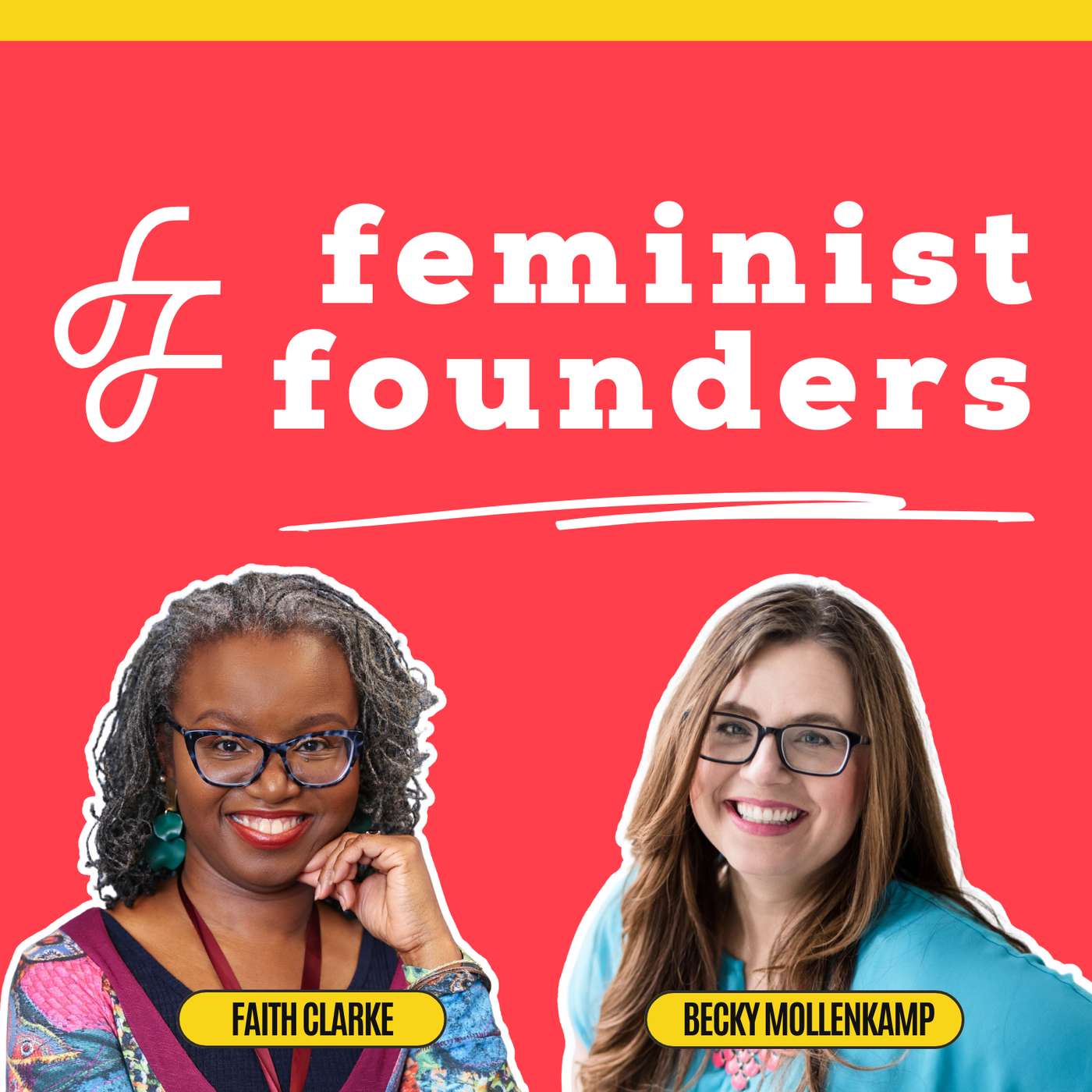
Feminist Founders: Building Profitable People-First Businesses
Becky Mollenkamp
Women Making Moves
Amy Pons
Queer News
E3 Radio
Nonprofit Mission: Impact
Carol Hamilton
Small But Mighty Agency: How to Grow Your Agency
Audrey Joy Kwan | Growth Strategist for Agencies
Disrupt Your Money
Meg K. Wheeler
Small Business Casual
Emily Aborn
Not Too Productive
Becca Rich
Messy Liberation: Feminist Conversations about Politics and Pop Culture
Becky Mollenkamp and Taina Brown
Empowered & Embodied Show
Kim Romain & Louise Neil
The Air We Breathe: Finding Well-Being That Works for You
Heather Sayers Lehman, MS, NBC-HWC, NASM-CPT, CSCS, CIEC, CWP
Careers at the End of the World: Reimagining Ambition, Work, and Your Job Search in Unprecedented Times
Jenn Walker Wall | Work Wonders Careers
The Passionistas Project Podcast | Motivational Stories of Passionate Women
Amy & Nancy Harrington | Women Inspiring Women
Humaning: The Shit We Need to Talk About
Steff Gallante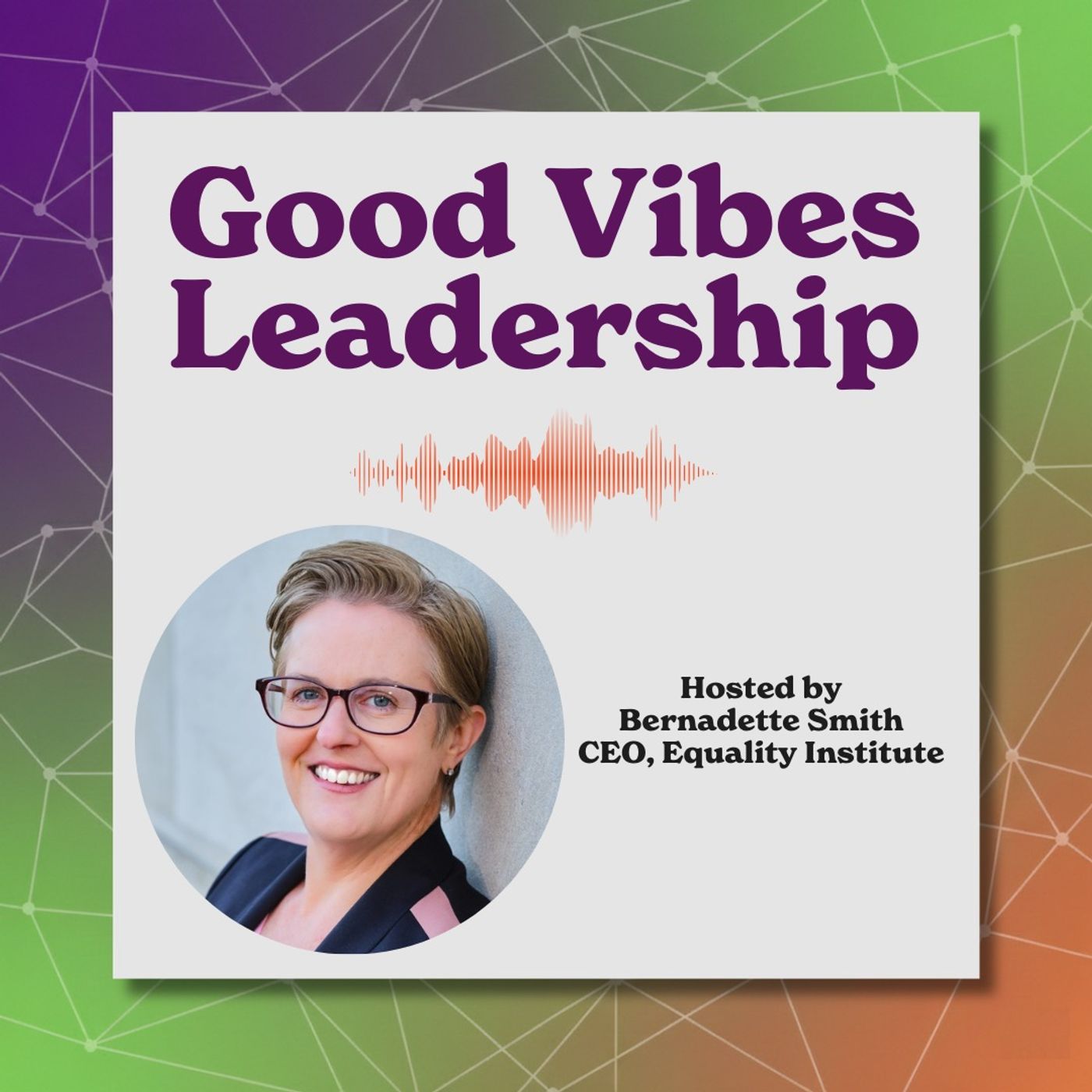
Good Vibes Leadership with Bernadette Smith
Bernadette Smith
The Art Of Imperfect Adulting
Amy Stone
Business as UNusual
BiCurean Consulting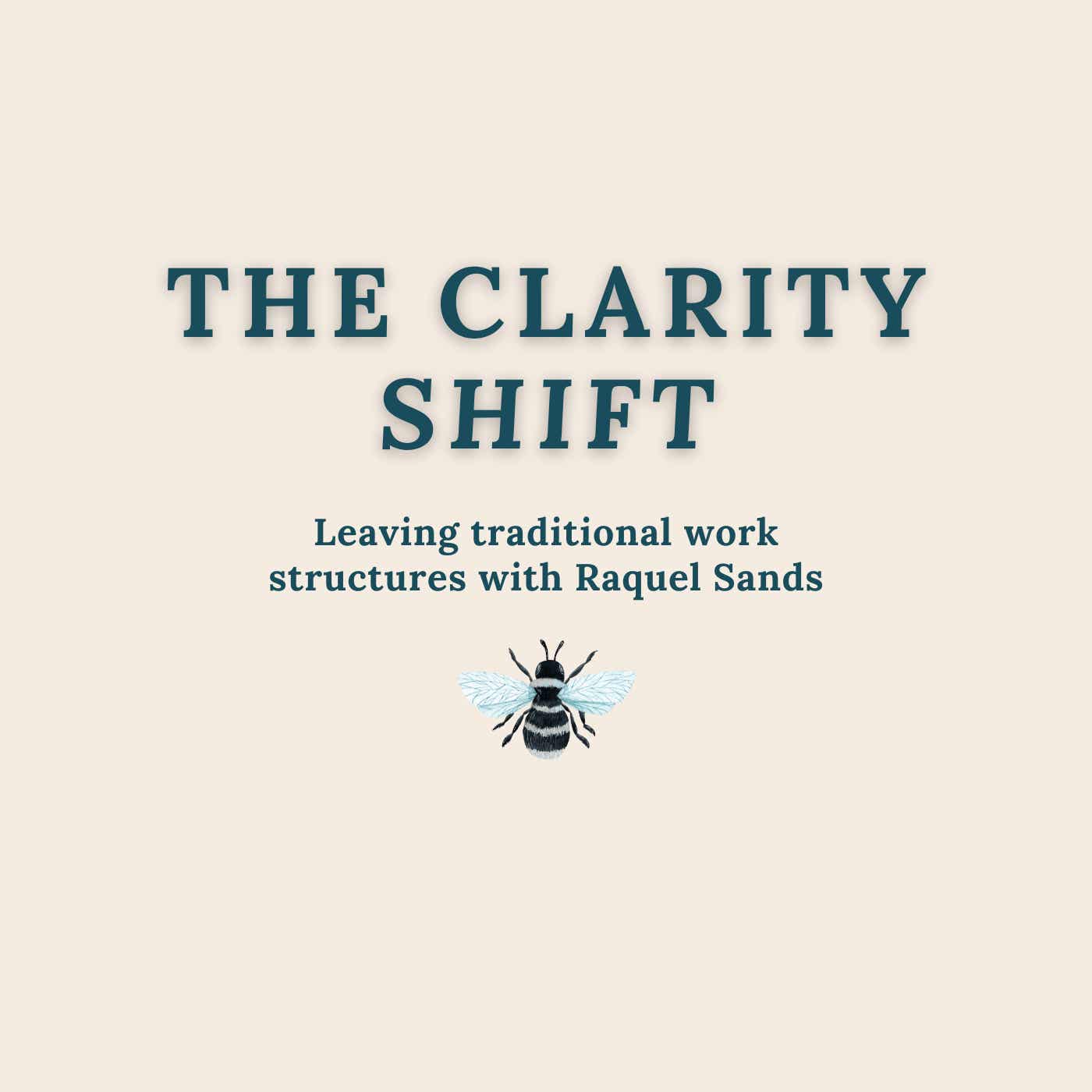
The Clarity Shift
Miriam Raquel Sands | Clarity + Alignment
Cozy Conversations with The Sister Project
Lauren Massarella and Michelle Anderson
Departure Menopause: Neurodivergent-Affirming & Weight-Inclusive Care
Melinda Staehling
The Empress and The Fool
Sarah Dittmore & Kaitlyn Gulock
The Good Pod
Jason Reed and Marissa Garza
Gratitude Geek | Business Education for Gen X Women Solopreneurs
Kandas Rodarte | Gen X Growth Coach for Women Solopreneurs
Mental Health Warrior & Neurodivergent Advocate
Amy D. Taylor | Mental Health Warrior & Neurodivergent Advocate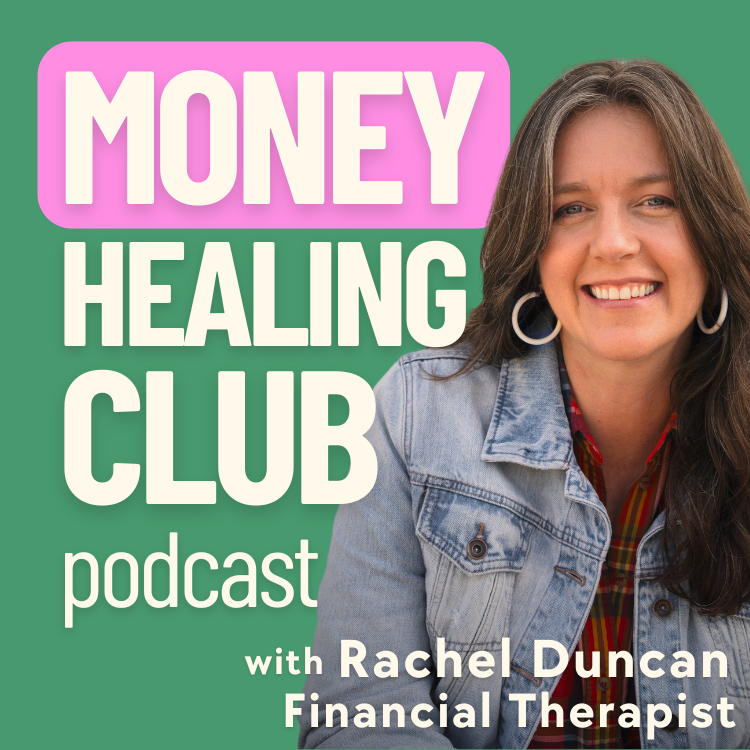
Money Healing Club Podcast
Rachel Duncan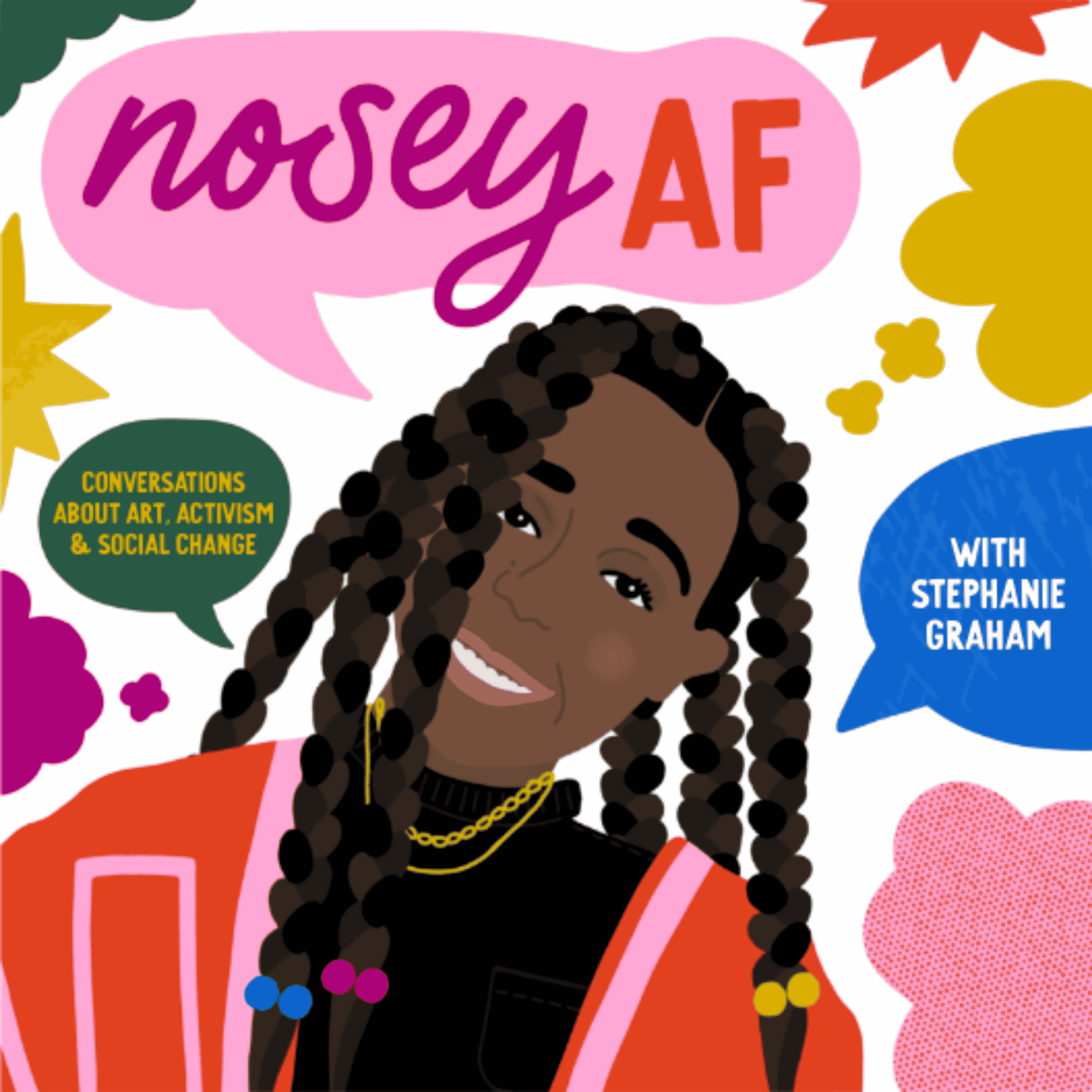
noseyAF: Conversations about Art, Activism, and Social Change
Stephanie Graham
The RestLab with Jordan Maney
Jordan A. Maney
Was It Chance?
Alan Seales, Heather Vickery & Broadway Podcast Network
White Homework
Tori Williams Douglass, Benjamin Faye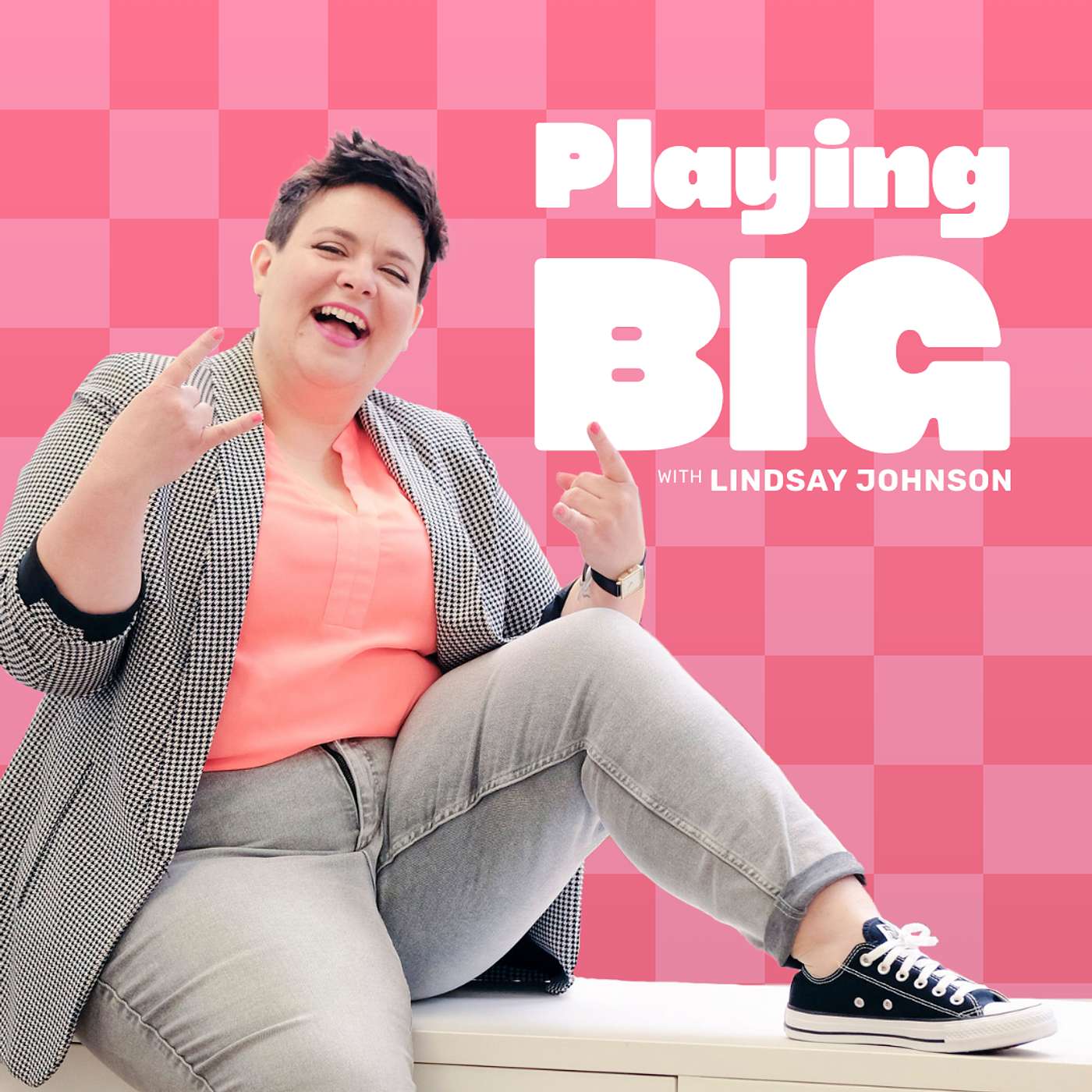
Playing Big with Lindsay Johnson
Lindsay Johnson, The Radical Connector






